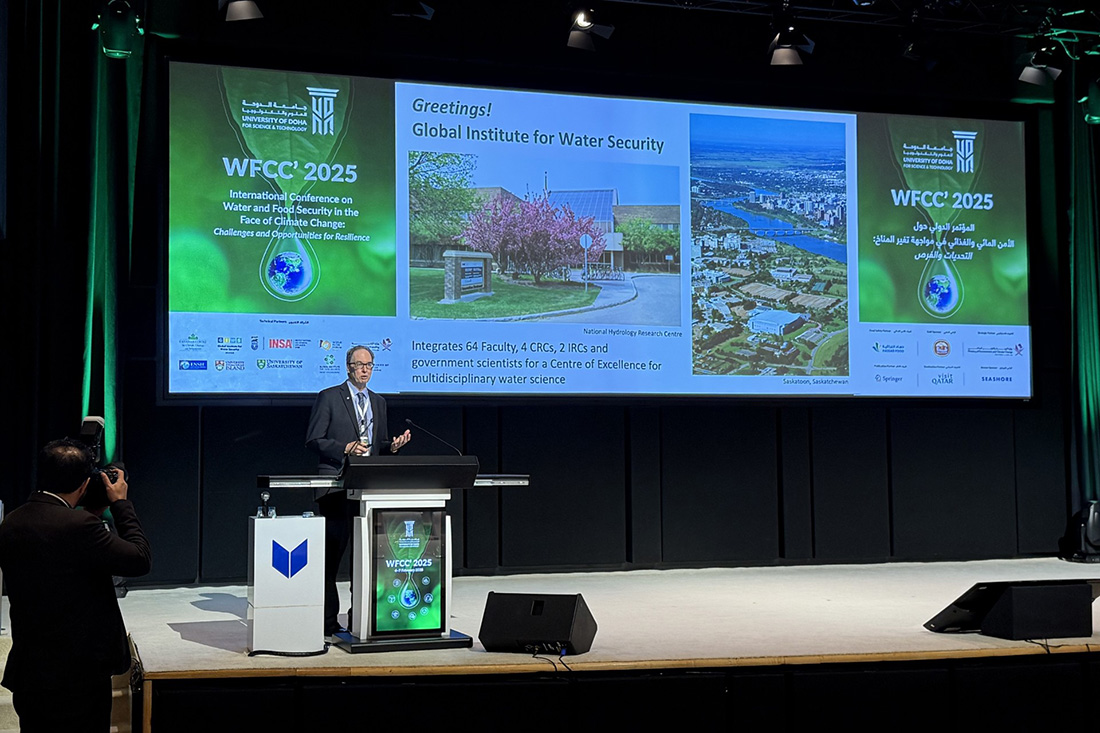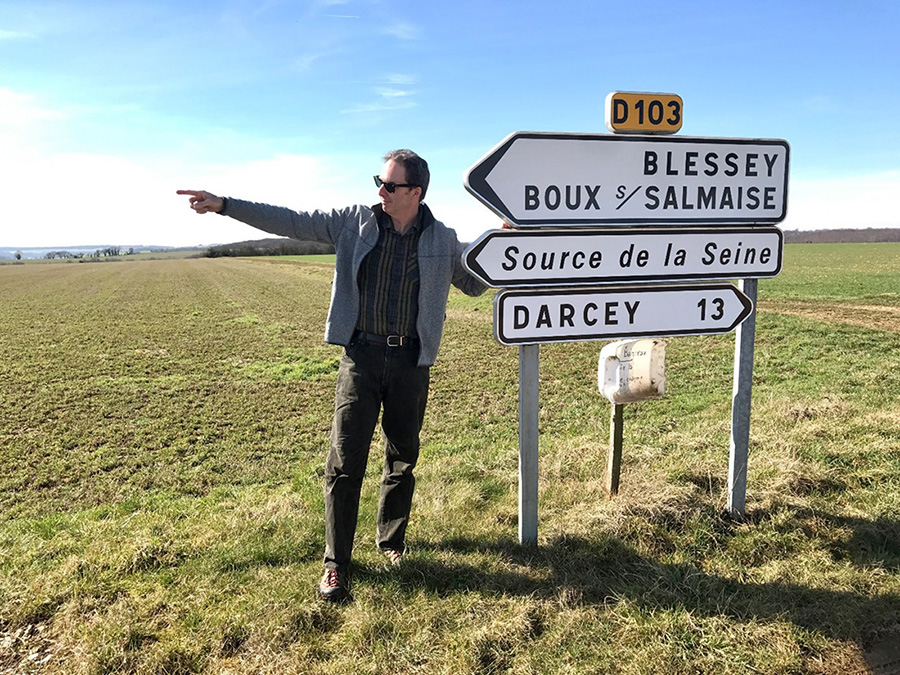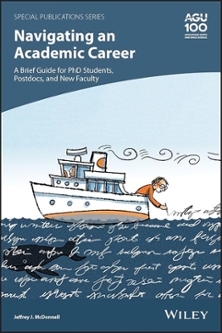
A lifetime of contributions to hydrology: Four questions with USask’s Jeffrey McDonnell
Recognized as one of the foremost experts in his field, Dr. Jeffrey McDonnell (PhD) has received numerous accolades for his groundbreaking contributions to hydrology, including being recently appointed as an Officer of the Order of Canada.
As a University Distinguished Professor of Hydrology at the University of Saskatchewan and Associate Director of the Global Institute for Water Security, McDonnell has dedicated his career to unraveling the mysteries of how water moves through landscapes. His pioneering research on watershed hydrology, isotope tracing, and runoff generation has reshaped the way we understand and model water systems, influencing both science and policy worldwide.
Recently appointed as an Officer of the Order of Canada for his contributions to environmental science, McDonnell’s work continues to inspire a new generation of hydrologists. In this article, we ask him four key questions to delve deeper into his research, motivations, and vision for the future of water science.
What does being appointed an Officer of the Order of Canada mean to you personally and professionally?
Being appointed an Officer of the Order of Canada makes me proud to be a Canadian. And I’m honored and humbled by the recognition. But really, it is a recognition of the many fantastic graduate students, postdocs and technicians that have worked in my lab over the years. Professionally, I think that it also recognizes USask and the flexibility that they have afforded me to do international work since my arrival in 2012. Outside of covid, I have spent many months per year in other counties tending to my field sites and international collaborations. My home unit, the School of Environment and Sustainability, and the Global Institute for Water Security that I am so tied to, have given me terrific colleagues to work and collaborate with.
Can you share some key moments or achievements in your career that you feel led to this recognition?

The central question in my work for the past 35 years has been focused on streamflow generation: where water goes when it rains, what flowpath it takes to the stream and how long it takes to get there. We’ve developed some new approaches to tracing all this with stable isotopes—fingerprints of water, effectively—that have allowed us to understand new behaviors of water flow into the stream and also the water flow that leaves the catchment via plant transpiration. So I guess that is what led to the recognition. Key moments for me all relate to the camaraderie I have had with collaborators; sometimes in the rain on some steep hillslope in a wild remote place; and sometimes in small workshop, where it feels like new ideas are splashing onto a whiteboard during our brainstorming sessions. But for sure, the highlight for me was in late 2019 when most of my former PhD students and postdocs (and a group of long time collaborators) all came together for a workshop in Luxembourg to celebrate my 60th birthday with me.
You have made an admirable commitment to mentoring early- and mid-career researchers. What advice would you give to the next generation of hydrologists?

I love mentoring. But I don’t really give advice per se. I use some of my own early career experiences—where I made every mistake in the book—as a teachable experience. I’ve written a few pieces on these experiences in Science and Nature, and a small book with John Wiley and Sons on the topic. But perhaps it can all be boiled down to age-old advice: that field discovery begins in wonderment of the natural world and extreme curiosity about how things work. I’m a big believer in the old equation: creativity quotient + the passion quotient >> the intelligence quotient. So, I think that no matter who the early career person is and what their abilities are, if they can live that equation and develop enough mastery of the basics and know the literature, then are well on their way. I think too what I am finding as I navigate the last few years as a professor, is that a research career means playing the long game. And that the newcomer to the field should know that they will be part of a chain of learning—with their contemporaries but also with their scientific ancestors. So I encourage the early career scientist to think about how they will be a good ancestor. To being kind to themselves and others. And follow the motto of the American Geophysical Union of “unselfish cooperation in research”.
What message do you hope your appointment sends about the importance of water science and research?
I hope that it can show that water science and research are important. And for me personally, I hope that it can show that good old fashioned hands-in-the-dirt field work and field-based discovery science can yield benefits; both intellectually and professionally.
